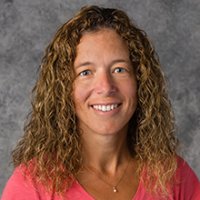Student Research Opportunities Open PRAIRIE Collection
The mission of the School of Health and Consumer Sciences is to focus on improving the quality of life regionally, nationally and globally by fostering life-long learners, conducting innovative research and teaching and delivering effective education and outreach. Our faculty work collaboratively to improve individuals’ health and translate scientific discoveries into practice through translational research, discovering through basic research, and progress to the clinical level and application.
Behavioral Nutrition and Physical Activity Laboratory
Dr. Kendra Kattelmann (nutrition education) and Dr. Jessica Meendering (physical activity) collaborate to direct the Behavioral Nutrition and Physical Activity Laboratory at SDSU. Together, these researchers contribute to our understanding of how environments and education impact diet and physical activity behaviors of individuals throughout the lifespan, especially among rural populations. Graduate Research Assistants that work in the Behavioral Nutrition and Physical Activity Laboratory gain valuable experience in all aspects of the research process and work toward publication of their thesis work. Past projects have included examining associations between school wellness policies and school environments in elementary schools and exploring the associations between the home food environment and preschool child diet, physical activity and weight status. For more information and to see current research projects, visit the Behavioral Nutrition and Physical Activity Laboratory website.
Biomechanics and Human Movement Science Laboratory
The Biomechanics and Human Movement Science Laboratory is equipped with 3D motion capture (Qualisys; 6 Oqus 300 series cameras), ground reaction force plates (AMTI; BP400600HF, BP600900 and AccuPower) and Visual 3D software for post processing. The lab equipment is used for the study of the application of mechanical principles to human movement. Although the equipment is suited for the analysis of a variety of movements, the focus of the lab is lower extremity biomechanics. Current and future projects include; Biomechanics of functional activities for people with multiple sclerosis, Mechanical asymmetries in people with multiple sclerosis, Running mechanics of obese children and the relationship between running mechanics, diet and bone mineral density.
Health and Human Performance Laboratory
The Health and Human Performance Laboratory is equipped for exercise and performance testing, personal fitness evaluation assessment, physical activity assessment and vascular function testing. The HHP Laboratory has an extensive list of equipment including, but not limited to: 150 Actigraph Accelerometers, 150 New Lifestyles Pedometers, Siemens Sequoia Ultrasound and Vascular Imaging Transducer, Medical Imaging Applications Vascular Tools 5 Software, Hokanson Rapid Cuff Inflation System, BIOPAC Data Acquisition System, BIOPAC Non-Invasive Blood Pressure Monitor, Woodway Treadmill, Trackmaster Treadmill, Cybex Isokinetic Dynamometer, Quinton Cardiac Science EKG Cart, 8 Monark Cycle Ergometers, Lode Cycle Ergometer, Vertec Vertical Jump System, COSMED Bod Pod, Parvo Medics Metabolic Cart, Two Velotron Cycle Ergometers, Cholestech LDX System, Fisher Scientific Marathon Centrifuge, Bio-Rad Microplate Reader and washer and Genesys Spectrophotometer. An additional space is dedicated to a training facility, which includes strength training equipment and a Multi-rider CompuTrainer system.
For more information, you can e-mail Dr. Jessica Meendering.
Molecular Nutrition Laboratory
The Molecular Nutrition Laboratory is located on the fourth floor of Wagner Hall in Brookings's main campus of SDSU. The laboratory houses modern equipment used to achieve a comprehensive understanding of how differential responses to dietary factors link across levels of human systems biology i.e. physical, biochemical, physiological and novel omics-based (metagenomics, gene expression, metabolomics) endpoints during adult life. As a modern fast-paced society, we prioritize short-term quick fixes through symptom management (e.g. using pharmaceuticals) over promoting natural holistic well-being. However, population health data (source: CDC, WHO) suggest that this approach to health solutions did not alleviate the chronic disease burden. The next-generation of robust lifestyle-oriented research can help validate or discard many existing weakly-held nutritional-health concepts to potentially inform long-term public health improvement.
If you would like more information regarding the Nutrigenomics Laboratory or you'd like to learn more about Dr. Dey’s research, you can email Dr. Moul Dey.
Orthopedics and Sports Medicine Laboratory
Dr. Lee Weidauer is the director of the Orthopedics and Sports Medicine Laboratory at SDSU. The primary focus areas of this lab are the prevention and treatment of orthopedic injuries and conditions through dietary and physical activity interventions. Research Focus includes:
- Identifying risk factors for post-traumatic osteoarthritis following anterior cruciate ligament injuries.
- Dietary interventions aimed at improving recovery following anterior cruciate ligament reconstruction.
- Dietary interventions to improve outcomes following joint replacement surgery
- A remote intervention aimed at the treatment of sarcopenia in older adults
- Bone health throughout the lifespan
- Repetitive use injuries
If you would like more information regarding the Orthopedics and Sports Medicine Laboratory or you'd like to learn more about Dr. Weidauer's research, you can email Dr. Lee Weidauer.
Faculty
For information about each faculty's research and scholarly focus areas and activities, you can visit their profiles pages below.

Geb Bastian
Assistant Professor, Extension Nutrition and Health State Specialist
School of Health and Consumer Sciences
SDSU Extension
Behavioral Nutrition and Physical Activity Laboratory

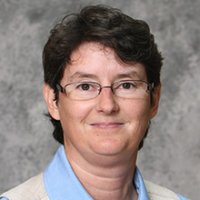

Kendra Kattelmann
Distinguished Professor Emerita of Nutrition and Dietetics
School of Health and Consumer Sciences
Behavioral Nutrition and Physical Activity Laboratory
College of Education and Human Sciences



Jessica Meendering
Professor
School of Health and Consumer Sciences
Behavioral Nutrition and Physical Activity Laboratory
College of Education and Human Sciences

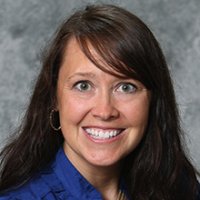
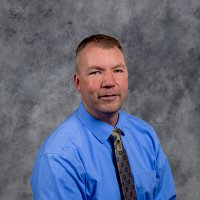
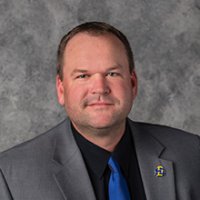


Matt Vukovich
College of Education and Human Sciences Professor and Associate Dean of Research
College of Education and Human Sciences

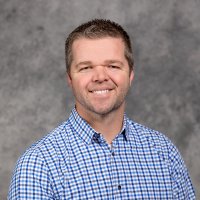
Lee Weidauer
Associate Professor
School of Health and Consumer Sciences
Orthopedics and Sports Medicine Laboratory
